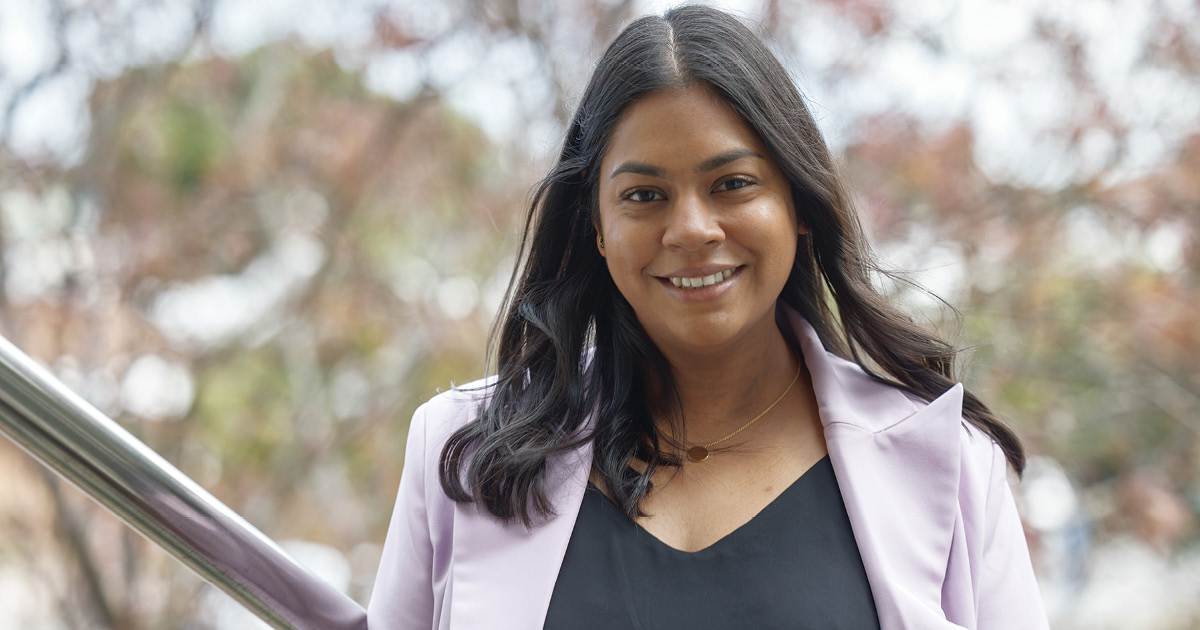A small group program to help parents tackle anxiety in young children diagnosed with autism has found significant improvements in both children’s anxiety and parental mental health and wellbeing.
Researchers from The Kids Research Institute Australia recently trialled the Coping with Uncertainty in Everyday Situations (CUES-Junior) program to see whether it could be delivered to families of young children diagnosed with autism, and if it was effective in managing anxiety around uncertainty (or fear of the unknown).
Lead researcher Dr Gail Alvares, Senior Research Fellow at The Kids’ CliniKids, said the CUES program had a significant effect on reducing the impact of uncertainty anxiety on both children and families compared to the study’s control group.
Dr Alvares said a third of the children were rated by independent assessors as clinically improved at the end of the eight-week program — a figure which climbed to 59 per cent two months later.
“Parents also rated improvements in children’s anxiety around uncertainty, and improvements in their own parental anxiety and stress,” she said.
The program aims to support children’s capacity for coping with worries around uncertainty and change.
Dr Alvares said anxiety disorders (for example, separation anxiety or social anxiety) could present in early childhood and be more complex in autistic individuals.
“Autistic children are more likely to experience anxiety concerns, which can have a large impact on them and the families who support them. However, there are not many effective programs available, especially for younger children, so we looked at ways to support these children and their families before anxiety became a significant issue.”
The CUES-Junior study recruited parents or primary caregivers of 64 children aged four to seven years and on the autism spectrum. In addition to attending the group program, which was facilitated by psychologists, participants completed questionnaires and interviews before and after the program.
During the program, parents learnt about uncertainty and its relationship to anxiety, plus were given individualised tools and strategies to manage uncertainty at home and other everyday situations such as school and shopping.
Uncertainty situations common to the families included teacher changes, birthday parties, playing with other children at playgrounds, and unpredictable sensory experiences in public toilets (for example, hand dryers).
Deep breathing, trampoline time, relaxation, role playing, and social stories were some strategies families tried out to support their child’s ability to cope.
Dr Alvares said the group environment also gave parents the opportunity to meet people in similar situations.
“If you have a child who has difficulty around uncertainty, the functional impact is high and it can be very isolating as it’s easier to avoid social situations than attend,” she said.
“This group not only tackled strategies to help parents manage children’s uncertainty but also provided them with an opportunity to build a community.”
Did you know?
- More than half of all autistic people have a mental health condition
- Four out of every five autistic individuals may experience an anxiety disorder in their lifetime
- One third of participating children were clinically improved at the end of the eight-week program
- Two months post-program, 59 per cent reported a clinical improvement
Next steps
- Researchers are developing a digital group program to benefit more families of autistic children, especially families who live in regional or remote areas. The program is being co-designed with parents
- This research demonstrated that providing an early parental program in small groups may benefit children’s anxiety around the unknown, however further research is needed to see whether these effects last in the longer term
Jake takes competition in his stride

Ten-year-old Jake Saunders has gone from a child who struggled to cope with sports carnivals to one who now competes at State level in Little Athletics, thanks to learning strategies that have helped him cope with his anxiety.
Mum Caroline Saunders said Jake, who was diagnosed with autism at two-and-half years of age, had been an anxious toddler but between therapy and knowing his triggers, she had thought they had a handle on it.
Despite this, Mrs Saunders decided to join the CUES-Junior study because she had a policy of always saying ‘yes’ to opportunities for parental learning and upskilling.
“It was only after the initial chat with Gail Alvares (lead of the CUES-Junior trial) that we discovered Jake was a lot more anxious than we thought,” Mrs Saunders said.
Prior to CUES, one situation which would trigger Jake was school sports carnivals. “Jake always had trouble with winning or losing and big crowds and would physically shake or have a meltdown after a race,” Mrs Saunders said.
“He always put a lot of pressure on himself, and he would worry about his heart beating too fast. Through CUES, we developed a strategy to help him cope with these situations by playing short games like UNO and Snap so he would get used to winning or losing.
“He also learnt breathing techniques — three deep breaths — to ground himself.”
Mrs Saunders said the program had helped Jake learn how to manage his anxiety and he now understood how his body responded physically to adrenaline. He had also learnt good sportsmanship skills and was far more resilient – all of which combined had allowed him to pursue his passion for running, with a more confident Jake recently making the State Little Athletics championships in the 400m and 800m events.
“Jake says he feels free when he’s running — he’s found something he truly loves to do and has thrown himself into it,” Mrs Saunders said.
“He often comes second and now instead of getting upset, he displays great sportsmanship by shaking hands with the other competitors and saying, ‘good job’.”

